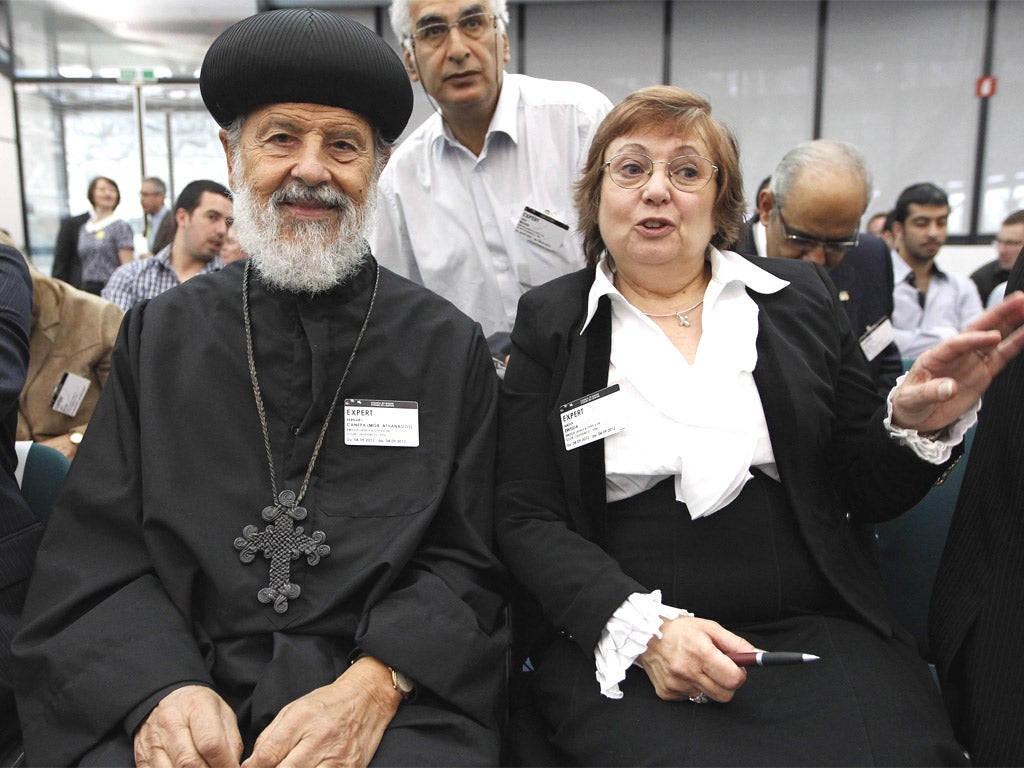Christians fight for rights at work in European court

Four Christians arguing for their right to religious freedom at work before the European Court of Human Rights yesterday were told that they could resign if they felt restrictions clashed with their beliefs.
In a landmark case that could have ramifications for employers in Britain, two are arguing for the right to wear a cross while the others object to dealing with same sex couples.
The cases, which have been battled out through the British courts, have inspired heated opinions. Secular groups warn they could create a "damaging hierarchy of rights with religion trumping all" while Christian organisations have accused the Prime Minister of hypocrisy when he said he supported religious freedom at work.
Yesterday the court in Strasbourg heard arguments for all four, including British Airways worker Nadia Eweida, 60, who was sent home in 2006 after refusing to remove a necklace with a cross. An employment tribunal ruled that the Coptic Christian had not suffered discrimination but the airline changed its uniform policy to allow all religious symbols.
In a similar matter, nurse Shirley Chaplin, 56, was moved to a paperwork role by the Royal Devon and Exeter NHS Trust in Devon after refusing to remove a crucifix, which it argued could cause injury when handling patients.
The court also heard from lawyers representing Gary McFarlane, 50, a marriage counsellor, who was sacked for refusing to give sex therapy to homosexuals and registrar Lillian Ladele, 51, who was disciplined after she declined to conduct same-sex civil partnerships.
The cases, which have been publicly backed by Lord Carey, the former Archbishop of Canterbury, contend employers contravened articles nine and 14 of the European Convention on Human Rights, which prohibit religious discrimination and allow "freedom of thought, conscience and religion". Yesterday James Eadie QC, representing the Government, said the linked cases raised questions about employees' rights to force their employers to alter conditions.
"Individuals should be free to manifest their religion or belief unless a restriction can be justified. That does not mean, however, that states should require employers to recognise an enforceable right of employees to practice their religion or beliefs at work," he said.
He continued: "All the applicants were able to manifest their religious belief in many ways outside the professional sphere. The court's jurisprudence is clear that employees are free to resign if they consider that the requirements of their employment are incompatible with their religious beliefs."
Dinah Rose QC, representing Lillian Ladele, argued that "the logical implication of the government's assertion is the rather startling one that a state employer could have a policy of refusing to employ practising Jews and say that was not a violation if other employers were prepared to employ them."
James Dingemans QC, representing Nadia Eweida, told the court that that British Airways' policy at the time was that religious items could be worn only if they were a "mandatory scriptural requirement", which included hijabs or turbans but not crosses.
Ms Eweida "found the requirement to conceal (the cross), sat next to colleagues allowed to wear other religious symbols, an insult to her Christianity and to her".
Yesterday the Christian Legal Centre, which is supporting Mr McFarlane and Ms Chaplin, accused David Cameron of "hypocrisy", quoting him as saying that the wearing religious symbols at work was "a vital religious freedom".
But Keith Porteous Wood, of the National Secular Society (NSS) warned that a victory for the four would be "bad news" for employers and gay people, adding: "Any further accommodation of religious conscience in UK equality law would create a damaging hierarchy of rights, with religion trumping all."
Join our commenting forum
Join thought-provoking conversations, follow other Independent readers and see their replies
Comments
Bookmark popover
Removed from bookmarks